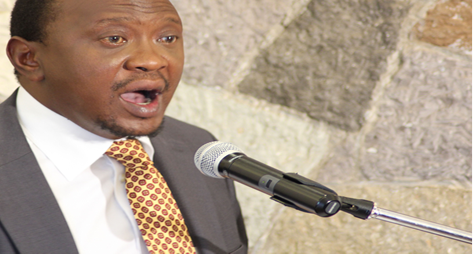By Joyce Wangui
Almost two years ago, President Uhuru Kenyatta issued a public apology ‘for all past wrongs’ by his government and his predecessors.
For many of the over 40,000 victims who gave statements to the Truth, Justice and Reconciliation Commission, the apology in the President’s State of the Nation address was not enough. Issuing the apology in Parliament appeared impersonal and insincere.
The President referred to incidents of repression and violence from Kenya’s past, including the 1984 Wagalla Massacre in which 3,000 people are believed to have been killed and the 2007-2008 Post-Election Violence in which over 1,133 people were killed, thousands maimed and over 600,000 displaced, but covered violations spanning the whole country over all of Kenya’s 50-year independence history.
The apology is one of the measures recommended by the TJRC report, which was presented by the Bethuel Kiplagat-led commission in August 2013 but has not been debated since. The President’s apology, coming before parliamentary action on the TJRC’s 2,210-page report, appeared to signal his impatience with the pace of action even as he urged that the report be considered “without undue delay”.
The TJRC report has listed 191 individuals who were adversely mentioned in official/public reports relating to politically instigated ethnic violence/clashes as well as illegal land acquisition. Many of those listed are serving Members of Parliament or have held important public offices. Notably, the inclusion of President Kenyatta’s family in the section on land was a source of controversy after some commissioners edited out portions while another published a dissent.
While apologies have inherent value in addressing moral and physical harm suffered, justice experts say the content, delivery, tone and timing of an apology are crucial.
Experts from the International Centre for Transitional Justice (ICTJ) in a report, More Than Words: Apologies as a Form of Reparation, say the most effective apologies are issued unequivocally. “For victims, it may matter whether an apology is written, handed over on paper, or read or spoken out loud. Likewise, the language spoken, the access to written, spoken, or the person delivering the apology are all significant. Some of the most meaningful apologies have occurred at the place where the violations occurred, and in consultation with victims,” the report says in part.
Although most official apologies, Uhuru’s included, provide a form of comfort to victims, they have been criticised as being poorly conceived, insincere and ineffective.
Restorative justice experts say while apologies on their own cannot fully restore trust or ever provide the full relief that victims and a society need to heal, they play an important role in giving meaning to reparations and promoting efforts to reform institutions and guarantee non-repetition of violations. They constitute an important step towards reconciliation on the journey towards lasting peace.
The President also directed that a Sh10 billion Restorative Justice Fund be established over three years to provide a measure of relief to victims.
No specific allocation has been made in the national budget, besides the Sh1.3 billion for the resettlement of internally displaced persons in the 2015/16 financial year.
“When the President mentioned the Sh10 billion fund, I felt relieved,” says Veronica Wambui, 70, the mother of Karimi Nduthu, the Secretary-General of Release Political Prisoners (RPP) lobby group, who was killed during the Daniel arap Moi administration.
Ndhiwa MP Agostinho Neto appears aware of the forces ranged against the establishment of a meaningful reparations framework, and is planning to present a Reparations Bill in Parliament.
Truth commissions are increasingly recommending the issuance of official public apologies as mechanisms for redressing victims who have suffered the worst violations.
As a symbolic reparative measure, an apology is a formal, solemn and, in most cases, public acknowledgement that human rights abuses were committed in the past, that they caused serious and often irreparable harm to victims and that the state, group, or individual apologising is accepting some or all of the responsibility for what happened.
It has become commonplace for individuals such as Heads of State to issue public apologies at different levels of their transitional justice mechanism including when a truth report is officially released or publicised. They apologise publicly, usually on behalf of the state, to victims of human rights abuses, their families and communities. South Africa, Chile, Nigeria, Kenya, Indonesia are examples of countries where apologies have been issued.
“For me, closure would have meant actionable procedures by the State to implement policies that bring about reparations,” says Onyango Oloo, a former political prisoner under the Moi administration, who feels that the State is more intent on ensuring closure of the Kenyan cases at the International Criminal Court than serving justice for victims.
The sincerity of the President’s apology has come into question not only with regard to the lack of arrangements to implement the restorative justice fund, but also in the cessation of violations for which he has expressed regret. Download the report here:







